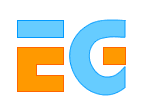T5Inverse Rendering: From Concept to Applications

- Organizer
- Celine Loscos, University College London
- Speakers
- Celine Loscos, University College London
Katrien Jacobs, University College London
Xavier Pueyo, Universitat de Girona, Girona Graphics Group
Gustavo Patow, Universitat de Girona, Girona Graphics Group
- Abstract
- Inverse problems are usually of extreme complexity and are an important research
topic for the graphics community due to their wide applicability. Those problems are
considered for which the input data is captured from reality with a camera, so it
is possible to extract information about the scene
illumination, reflectance properties, or geometry.
Unfortunately, sometimes standard techniques fail due to
practical issues: uncertainty in acquisition methods, dynamic
behaviors, complexity of the scene and approximate
geometrical or lighting model.
This course not only aims at the presentation of the fundamental principles behind
inverse rendering problems, but also presents some practical considerations that
arise in some applications, explains the new problems introduced and shows adequate
solutions. In the introduction, a review is given of the course objectives, the context
and some of the prerequisites, e.g. a general definition of global illumination.
The first part of the course gives a definition of inverse rendering, and presents a
selection of inverse rendering solutions present in the literature. The second part of
the course, describes practical methods that can be used in specific applications of
inverse rendering. Retrieving reflectance and illumination properties of an existing
site is of interest in areas as post-production, architectural and urban planning, and
interior lighting design. Modeling geometric properties of an object based on
illumination output can be used in the design of reflectors in the car industry or
urban lighting design.
The course is given as a lecture and is supported by slides and videos. Material
created by the course organizers and coming from other sources is used to illustrate
the ideas presented in the course.
At the end of the course, attendees will have a good understanding of inverse
rendering problems, and be able to select a method from the literature to apply to a
specific application.
- Speakers' Background
-
- Celine Loscos
- Celine Loscos joined the Department of Computer Science at UCL in 2000 as a
post-doc, after completing her PhD on interactive relighting for augmented
reality (1999, IMAG-INRIA, France). Since 2001, she has been a lecturer in
department and teaches computer graphics to undergraduate and postgraduate
students. She is part of Virtual Environments and Computer Graphics (VECG)
laboratory. Her research focuses on real-time rendering, animation and interaction
in complex environments for mixed reality on which she has co-authored papers
published in IEEE, ACM and EG conferences/journals.
- Katrien Jacobs
- Katrien Jacobs graduated as an Electrical Engineer at the Katholieke University
of Leuven (ESAT-KUL), Belgium, in 2002 and started her PhD in Computer Science at
University College London (UCL) in 2003. Her work includes developing common
illumination and relighting solutions for difficult to capture and model environments.
Recent published work includes a survey on illumination methods for mixed reality in
Computer Graphics Forum. She is supervised by Dr. Celine Loscos.
- Xavier Pueyo
- Xavier Pueyo received a PhD in Engineering from Universitat Politecnica de Catalunya
(UPC), Spain, in 1986 and the degree of Docteur Ingenieur in Computer Sciences from
Universite de Rennes I, France, in 1984. He is a professor of Computer Sciences at the
Universitat de Girona (UdG), Spain, since 1996 and he has been the dean of its School
of Technology. He taught Computer Sciences (Programming and Computer Graphics) at UdG
from 1993 to 1996 and at UPC from 1988 to 1993 as an associate professor. His research
interest includes computer graphics, realistic computer rendering and visualization.
Pueyo has chaired the Eurographics Rendering Working Group and the Spanish Chapter of
Eurographics.
- Gustavo Patow
- Gustavo Patow got a degree in physics from the Universidad de La Plata,
Argentina, and got his PhD at the Universitat Politcnica de Catalunya at
Barcelona, Spain, under the supervision of Xavier Pueyo and lvar Vinacua. His
thesis topic was the inverse design of reflector surfaces for luminaire design,
and his current research continues in the inverse rendering set of problems.
He currently holds an associate professor position at the Universitat de Girona,
Spain.
If you have any comments regarding this webpage please send a message to the webmaster.
























